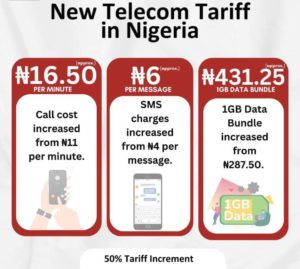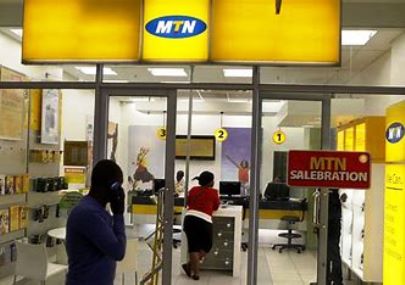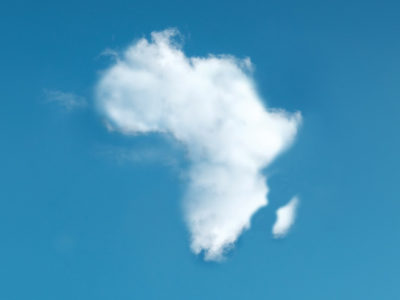MTN Nigeria Stocks Surge Following Telecom Tariff Hike to Combat Inflation and Naira Depreciation

MTN Nigeria Communications Plc saw its shares skyrocket after the Nigerian government approved a 50% increase in telecommunications tariffs, a move aimed at addressing the challenges of surging inflation and the sharp decline of the naira. The tariff hike, which was announced by the Nigerian Communications Commission (NCC), is expected to stabilize the telecom sector by enabling operators to manage rising operational costs while making critical infrastructure investments.
RELATED: NCC approves 50% tariff hike for telecom services: Implications for Nigerians and industry
MTN Nigeria Responds Positively to Tariff Adjustment
In a statement issued by Uto Ukpanah, MTN Nigeria’s company secretary, and published on the Nigerian Exchange Limited (NGX), the telecom giant expressed its commitment to leveraging the adjustment to empower millions of Nigerians and businesses.
Speaking on the development, Karl Toriola, CEO of MTN Nigeria, stated:
“This adjustment addresses the escalating costs of operations and allows us to sustain the critical investments needed for the growth and innovation of the telecom industry in Nigeria.”
The tariff hike immediately reflected on MTN Nigeria’s stock performance, with shares surging 10% to ₦256.30 in Lagos, marking the maximum daily increase allowed by the exchange. Meanwhile, rival Airtel Africa Plc’s shares remained steady at ₦2,156.90.
NCC’s Decision Balances Operator Sustainability and Consumer Protection
The NCC, in announcing the 50% hike, emphasized its commitment to supporting operators while protecting consumers. During a stakeholder meeting in Abuja, Dr. Bosun Tijani, Minister of Communications, Innovation, and Digital Economy, disclosed that Mobile Network Operators (MNOs) had originally sought a 100% increase in tariffs, but the government approved a lower adjustment to strike a balance.
“We aim to ensure telecom operators remain sustainable while mitigating the burden on subscribers,” Dr. Tijani said.
Key Drivers Behind the Tariff Increase
- Escalating Operational Costs:
- Rising Energy Costs: The surge in diesel prices has sharply increased the cost of powering telecom infrastructure, such as base stations.
- Currency Depreciation: The volatility of the naira has driven up the cost of importing telecom equipment.
- Inflation: Nigeria’s rising inflation rate has added to the financial strain on operators.
- Stagnant Tariffs:
- Tariffs had remained unchanged for over 11 years, leaving operators unable to absorb rising expenses.
- Economic Impact:
- Telecom operators argue that without tariff adjustments, essential services in commerce, healthcare, education, and security—all reliant on telecom infrastructure—could face disruptions.
Subscribers Push Back Against Tariff Hike
The National Association of Telecommunications Subscribers (NATCOMS) has voiced strong opposition to the tariff hike. Deolu Ogunbanjo, President of NATCOMS, warned that the adjustment would have far-reaching consequences for Nigerians:
“This tariff adjustment will affect everyone—from major corporations to small businesses, including Point of Service (POS) operators. Operational costs across all sectors will increase.”
NATCOMS has pledged to challenge the tariff hike in court, advocating for a smaller, 5% to 10% increase as a more balanced solution.
MTN Nigeria’s Optimistic Outlook
Despite the backlash, MTN Nigeria remains optimistic about the future. CEO Karl Toriola thanked the Federal Government, NCC, and industry stakeholders for their support in ensuring the telecom sector remains sustainable.
“This adjustment represents a crucial step toward addressing the economic challenges impacting our business and the telecom industry as a whole,” Toriola said.
Implications for the Telecom Industry
The tariff hike is expected to generate significant revenue for telecom operators, allowing them to:
- Sustain operations despite rising energy and import costs.
- Invest in infrastructure upgrades and innovation.
- Strengthen network coverage and quality to meet consumer demand.
However, the increase could also strain consumers and small businesses, with ripple effects on the cost of goods and services across various sectors.





























